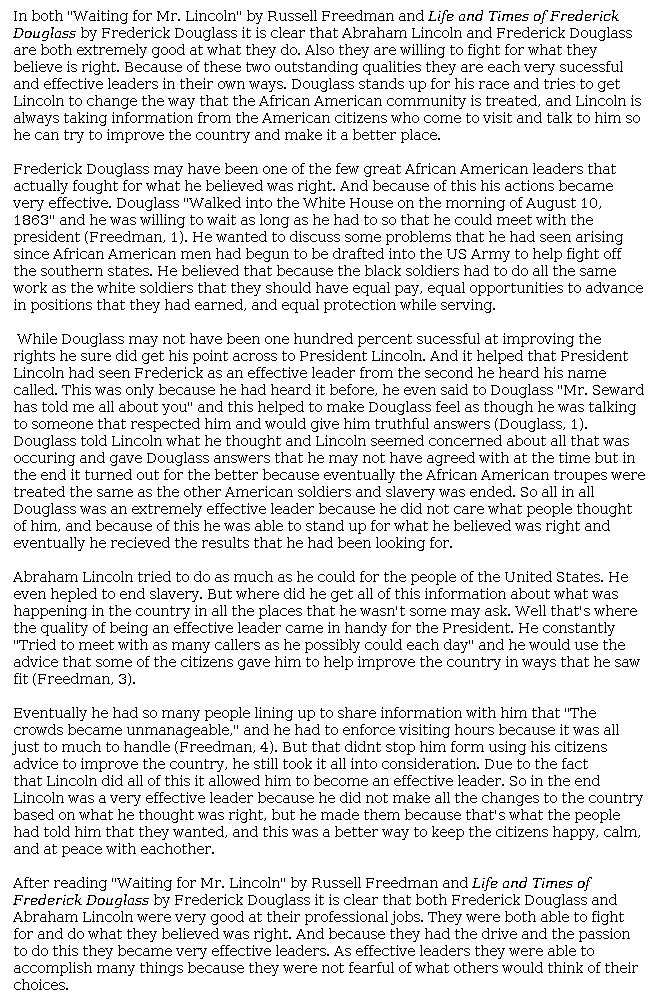2018 MCAS
Grade 8 English Language Arts
Question 8
Idea Development - Score Point 5
The essay is fully developed, presenting strong evidence from the passages to produce a convincing account of why both Lincoln and Douglass were effective leaders. The introduction states that they are both "willing to fight for what they believe is right," Douglass by "stand[ing] up for his race" and Lincoln by "always taking information from the American citizens who come to visit and talk to him so he can try to improve the country." The essay goes on to discuss Douglass and Lincoln in turn, skillfully selecting evidence from the passages to explain their leadership qualities. Douglass "believed that because the black soldiers had to do all the same work as the white soldiers that they should have equal pay, equal opportunities . . . and equal protection." In meeting with Lincoln, Douglass "was able to stand up for what he believed was right and eventually he received the results that he had been looking for." For his part, Lincoln "was a very effective leader because he did not make all the changes to the country based on what he thought was right, but he made them because that's what the people had told him that they wanted." The conclusion, though relatively brief, insightfully synthesizes the leadership qualities of the two men by explaining that they both "had the drive and the passion" to do what they believed in and were both "able to accomplish many things because they were not fearful of what others would think of their choices." Rich expression of ideas and skillful organization of developed details contribute to the overall meaning and reveal full awareness of the writing task.
Standard English Conventions - Score Point 3
The essay includes a variety of sentence structures in complex text. Sentence formation is mostly correct and controlled, as are grammar, usage, and mechanics. Quotations are well integrated into the text; for example, "Eventually he had so many people lining up to share information with him that 'the crowds became unmanageable,' and he had to enforce visiting hours." Despite some obvious errors, overall correctness supports clear expression of ideas.

[ 5 Points |
5 Points |
4 Points |
3 Points |
2 Points |
1 Point |
0 Points]
